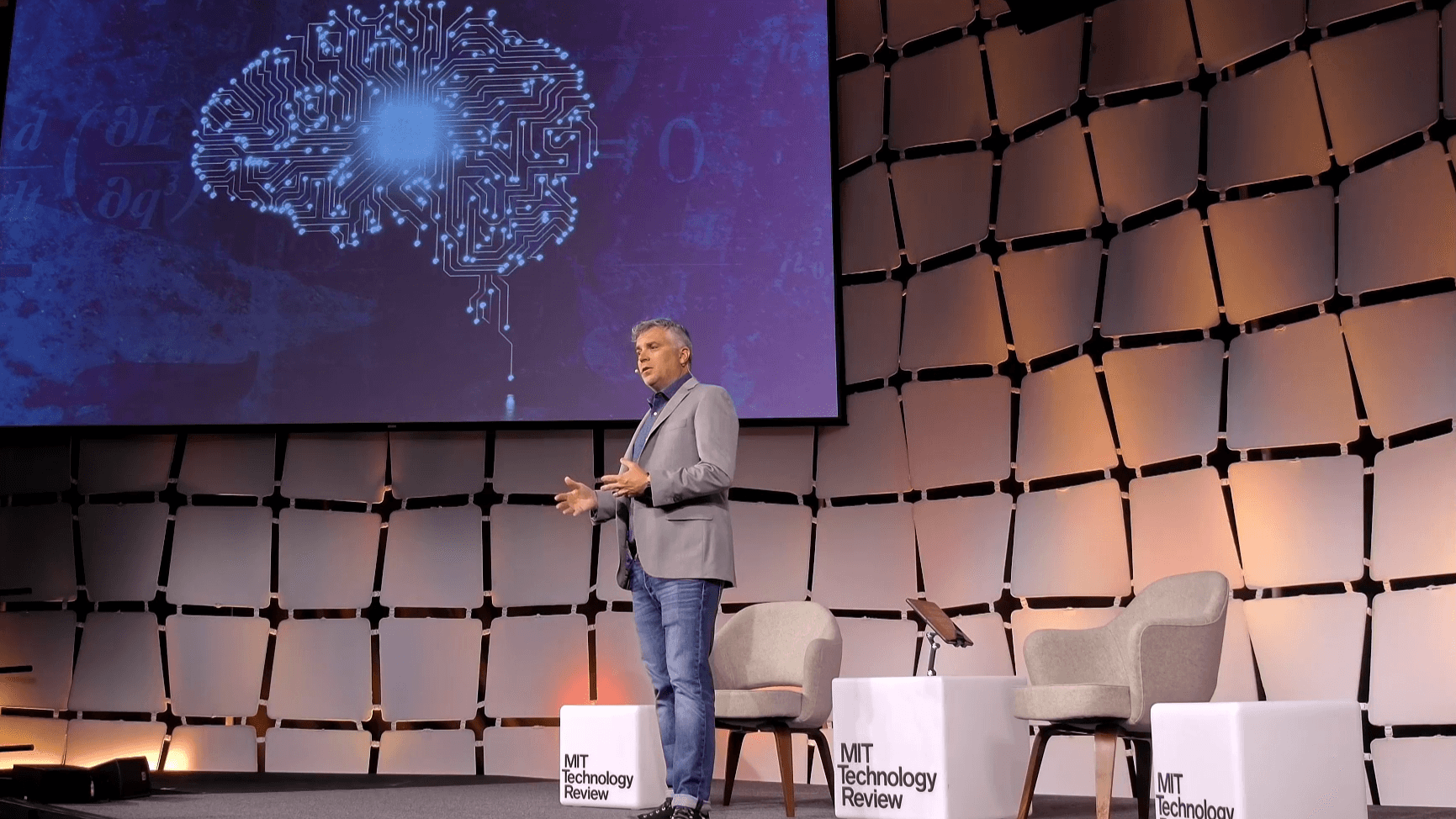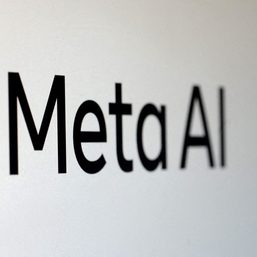SUMMARY
This is AI generated summarization, which may have errors. For context, always refer to the full article.

Generative artificial intelligence (AI) is no longer a mere novelty. It’s now everywhere, and it’s progressing very fast, with new models and datasets being released on a week-to-week basis.
These advancements bring about a wealth of use cases for AI. But at the same time, they also underscore the ethical dilemmas attached to such a technology – one with the capabilities to undermine humans just as much as it can help them. That’s why, the question we must ask now is no longer ‘What could we do?’ but rather ‘What should we do?’.
Tech leaders and researchers try to answer that question in a session tackling how to best use generative AI technology, held on Wednesday, May 22, at EmTech Digital, MIT Technology Review’s annual AI conference.
Asu Ozdaglar, deputy dean of academics at MIT’s Schwarzman College of Computing, suggests two general paths for AI: it can either realize the path of human flourishing, expanding our capabilities and making us better at achieving our objectives; or it can become a barrier to human flourishing, sidelining us even if it brings some gains in productivity.
Human-AI collaboration
Human flourishing, as Ozdaglar defines it, is a concept wherein we humans enjoy comfort, health, and prosperity and have the ability to lead purposeful and meaningful lives.
She explains that AI can help in human flourishing by boosting our creativity, making our work more meaningful, and enriching our entertainment.
In contrast to that, AI can also diminish the concept by reducing the ability for our diverse communities to make key decisions for themselves for shaping their lives and achieving purpose and meaning.
One such example of this is when AI is used to manipulate humans. Deepfake content, for instance, can portray something that didn’t actually occur in reality, thereby deceiving you to believe in false information or distorting your perception of truth. And when the information you believe in has been manipulated in any way, your ability to make rational decisions is compromised.
For AI to become beneficial, it must complement humans, not replace them. To do that, Ozdaglar says that regulations must be put in place that prioritizes basic safety, the same way governments regulate medical practitioners, to cite one example. The approach should also promote human-AI collaboration rather than AI itself as an autonomous agent.

There are already a number of use cases where human-AI collaboration is proving to be effective.
Kari Ann Briski, VP of AI models, software, and services at silicon giant Nvidia, discussed in the same session how AI can be an invaluable tool in biotech, specifically in drug discovery.
The process of drug discovery faces several challenges. Chief among which are the cost and time associated with navigating the vastness of chemical space and conducting experimental screenings. The traditional methods of drug discovery also have a lot of limitations.
However, through biomolecular generative models and the computational power of GPUs, we can explore the chemical space and sample massive amounts of structures in a more cost- and time-efficient manner. Then, we can identify those that are promising and test only those.
Briski adds that generative models can also help revolutionize weather forecasting. Current weather forecasting AI models can accurately predict the track of storms at a 25 km resolution. But by combining the speed and accuracy of such a model with that of a generative AI model, we can explore regional weather forecasts at a much larger scale to provide a clear picture of the impacts of storms.
Future of generative AI
These use cases underscore the benefits of human-AI collaboration and could help further grow the AI space in the near future. According to Nathan Benaich, founder and general partner of Air Street Capital, a venture capital for AI-first companies, the space in general has amassed over $22 billion in investments so far, propelled largely by the boom of generative models in the last couple of years.
Benaich believes generative AI will continue to dominate mainstream consciousness in the coming years. In his annual State of AI report, which he shared during the session, he predicts the following to happen:
- Generative AI will be implicated in the US or other electoral campaigns.
- Self-improving AI agents will make progress in digital worlds that are even more complicated than video games.
- Governments and nation states might start blocking investments and acquisitions for major tech companies and AI businesses on various grounds, whether it’s competition or national security.
- Billboard 100s or Spotify listings will be populated with AI-generated songs
- As inference workloads and costs grow significantly, a large AI company – OpenAI, for example – might acquire or build an inference-focused AI chip company. Inference is the ability for AI to understand new data, based on previous data it was trained on. For example, from a database of images of dogs, it is able to look at a new photo of a dog, and identify it correctly as a dog.
In entertainment, Benaich believes that the use of generative AI will create new genres of content instead of replace human actors in movies and shows. He adds that, if anything, AI will help content become more accessible, translating it in different languages with a click of a button. – Rappler.com
Add a comment
How does this make you feel?





There are no comments yet. Add your comment to start the conversation.